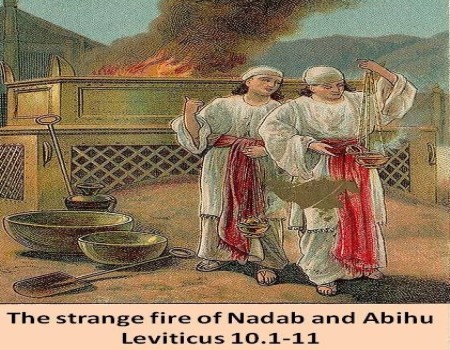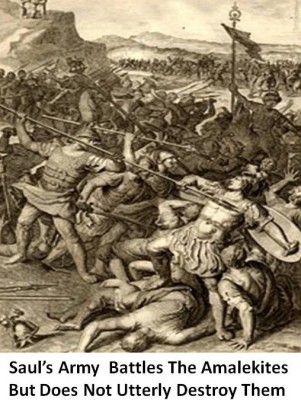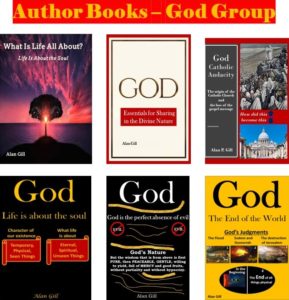God’s Apparent Harshness, A Difficulty For Some
This is an excerpt from my book, “What Is Life All About?” This is specifically chapter 35 which carries the title of this post, “God’s Apparent Harshness, A Difficulty For Some.”

Leviticus 10.1-3
Then Nadab and Abihu, the sons of Aaron, each took his censer and put fire in it, put incense on it, and offered profane fire before the Lord, which He had not commanded them. So fire went out from the Lord and devoured them, and they died before the Lord.
Then Moses said to Aaron, “This is what the Lord spoke, saying:
‘By those who come near Me
I must be regarded as holy;
And before all the people
I must be glorified.’”
So Aaron held his peace.
I KNOW GOD’S “apparent harshness” we see in some scriptures has caused people to have problems believing the Bible. God in the Old Testament requires the utter destruction of certain cities/ peoples/everything. This meant the destruction of every man, woman,child, animal, and any tangible thing of value.
1 Samuel 15.1-3
1 Samuel also said to Saul, “The LORD sent me to anoint you king over His people, over Israel. Now therefore, heed the voice of the words of the LORD.
2 Thus says the LORD of hosts: ‘I will punish Amalek for what he did to Israel, how he ambushed him on the way when he came up from Egypt.
3 Now go and attack Amalek, and utterly destroy all that they have, and do not spare them. But kill both man and woman, infant and nursing child, ox and sheep, camel and donkey.’”
Exceedingly severe and yet men who would do such are condemned. God always has a reason for what He does, and He does not always completely reveal those reasons. God, unlike man, has the right to take human life just as he can create it. He is the Creator!
Job 38
The LORD Reveals His Omnipotence to Job
1 Then the LORD answered Job out of the whirlwind, and said:
2 “Who is this who darkens counsel
By words without knowledge?
3 Now prepare yourself like a man;
I will question you, and you shall answer Me.
4 “ Where were you when I laid the foundations of the earth?
Tell Me, if you have understanding.
5 Who determined its measurements?
Surely you know!
Or who stretched the line upon it?
6 To what were its foundations fastened?
Or who laid its cornerstone,
7 When the morning stars sang together,
And all the sons of God shouted for joy?
8 “Or who shut in the sea with doors,
When it burst forth and issued from the womb;
9 When I made the clouds its garment,
And thick darkness its swaddling band;
10 When I fixed My limit for it,
And set bars and doors;
11 When I said,
‘This far you may come, but no farther,
And here your proud waves must stop!’
12 “Have you commanded the morning since your days began,
And caused the dawn to know its place,
13 That it might take hold of the ends of the earth,
And the wicked be shaken out of it?
14 It takes on form like clay under a seal,
And stands out like a garment.
15 From the wicked their light is withheld,
And the upraised arm is broken.
16 “Have you entered the springs of the sea?
Or have you walked in search of the depths?
17 Have the gates of death been revealed to you?
Or have you seen the doors of the shadow of death?
18 Have you comprehended the breadth of the earth?
Tell Me, if you know all this.
19 “ Where is the way to the dwelling of light?
And darkness, where is its place,
20 That you may take it to its territory,
That you may know the paths to its home?
21 Do you know it, because you were born then,
Or because the number of your days is great?
22 “Have you entered the treasury of snow,
Or have you seen the treasury of hail,
23 Which I have reserved for the time of trouble,
For the day of battle and war?
24 By what way is light diffused,
Or the east wind scattered over the earth?
25 “Who has divided a channel for the overflowing water,
Or a path for the thunderbolt,
26 To cause it to rain on a land where there is no one,
A wilderness in which there is no man;
27 To satisfy the desolate waste,
And cause to spring forth the growth of tender grass?
28 Has the rain a father?
Or who has begotten the drops of dew?
29 From whose womb comes the ice?
And the frost of heaven, who gives it birth?
30 The waters harden like stone,
And the surface of the deep is frozen.
31 “Can you bind the cluster of the Pleiades,
Or loose the belt of Orion?
32 Can you bring out Mazzaroth[a] in its season?
Or can you guide the Great Bear with its cubs?
33 Do you know the ordinances of the heavens?
Can you set their dominion over the earth?
34 “Can you lift up your voice to the clouds,
That an abundance of water may cover you?
35 Can you send out lightnings, that they may go,
And say to you, ‘Here we are!’?
36 Who has put wisdom in the mind?[b]
Or who has given understanding to the heart?
37 Who can number the clouds by wisdom?
Or who can pour out the bottles of heaven,
38 When the dust hardens in clumps,
And the clods cling together?
39 “Can you hunt the prey for the lion,
Or satisfy the appetite of the young lions,
40 When they crouch in their dens,
Or lurk in their lairs to lie in wait?
41 Who provides food for the raven,
When its young ones cry to God,
And wander about for lack of food?
So many people want to judge God! Someone says God would not take human life; therefore, God is not the God of the Bible. People trust God in what they understand and agree with that is easy. God’s ways are so much higher than man’s ways that there will be things that you may not agree with or understand.
Deuteronomy 29.29
29 The secret things belong to the LORD our God, but those things which are revealed belong to us and to our children forever, that we may do all the words of this law.
You learn as you begin to grow in knowledge of the Bible, to trust God in all things.
Just realize we cannot understand much of what He has done or often why He has done it. We can understand all we need to know to make heaven our home.
2 Peter 1:3 All We Need To Make Heaven Our Home Has Been Revealed
3 as His divine power has given to us all things that pertain to life and godliness, through the knowledge of Him who called us by glory and virtue,
Saul, Samuel and the Amalekites
 There is such a good lesson in the story of King Saul, who is to “utterly destroy” the Amalekites, relative to understanding God. As mentioned, such an order from God would seem extremely harsh. Saul returns and Samuel says, “Now the Lord sent you on a mission,” and said, “Go and utterly destroy the sinners, the Amalekites, and fight against them until they are consumed.” Saul then said to Samuel, “But I have obeyed the voice of the Lord.” Saul repeats that he has obeyed God but blames the people with him who took the plunder from what should have been “utterly destroyed.” Saul then tells Samuel, “But the people took of the plunder, sheep and oxen, the best of the things which should have been utterly destroyed, to sacrifice to the Lord your God in Gilgal.” Samuel then tells Saul that “to obey is better than sacrifice” and that because Saul rejected the Word of the Lord, God would reject him from being king. Finally, Saul admits that he had sinned in having transgressed the commandment of the Lord as he claims he feared the people and obeyed their voice. The lesson is in the sympathy that many today might feel for Saul. His excuses sound good. The people did it. They wanted to provide for God the best of sacrifices. Lastly, Saul indicates there was fear of the people if he would not let them keep part of the spoil.
There is such a good lesson in the story of King Saul, who is to “utterly destroy” the Amalekites, relative to understanding God. As mentioned, such an order from God would seem extremely harsh. Saul returns and Samuel says, “Now the Lord sent you on a mission,” and said, “Go and utterly destroy the sinners, the Amalekites, and fight against them until they are consumed.” Saul then said to Samuel, “But I have obeyed the voice of the Lord.” Saul repeats that he has obeyed God but blames the people with him who took the plunder from what should have been “utterly destroyed.” Saul then tells Samuel, “But the people took of the plunder, sheep and oxen, the best of the things which should have been utterly destroyed, to sacrifice to the Lord your God in Gilgal.” Samuel then tells Saul that “to obey is better than sacrifice” and that because Saul rejected the Word of the Lord, God would reject him from being king. Finally, Saul admits that he had sinned in having transgressed the commandment of the Lord as he claims he feared the people and obeyed their voice. The lesson is in the sympathy that many today might feel for Saul. His excuses sound good. The people did it. They wanted to provide for God the best of sacrifices. Lastly, Saul indicates there was fear of the people if he would not let them keep part of the spoil.
The true lesson is that you miss the point and an important understanding of God in the process of excusing and being concerned over Saul’s predicament. Many times, we see ourselves as a Saul. We are ready to provide an excuse for our actions. We are ready to justify whatever we do; however, we need to understand that God in effect is saying, “Don’t waste your time!” At times God may seem harsh in His dealings with mankind. You can also expect God to be harsh with those who die in their sins. God demands obedience, and no excuses, even those that seem so very valid, will not take the place of obedience.
The thing that stands out in our world is our invention of religion. We provide in the name of God what we decide will please Him. We build great buildings, make special ceremonies, select certain dates as special, and define all aspects of worship as we please. God did not accept Saul’s sacrifice of the best of everything, but looked first to obedience. There is no substitute for God commands. We please God when we take what He has revealed seriously. So throughout this book when there is reference to the religions of man or man-made religion, it is an inference to being like Saul and so many others down through the ages that violate the prime directive of God. There is no greater transgression against God than to do it your way!
One thing we need to understand about God is simply that He is God and we cannot judge His actions in any meaningful manner as though He were a man or a woman. In the previous chapter, we see how God hates hands that shed of innocent blood, but here and in other places in the Bible, God will take human life or have others do so. People apparently like to believe that they are better than God in that they would not take a human life as the God of the Bible has done or directed men to do. God has provided man with characteristics different from the animals, and they include an intellect and a personality and, of course, a spiritual part, which lives forever. God’s love for humanity is so deep that He sends Jesus to suffer and die the terrible death so that men have the opportunity to share eternity with Him.
In Summary, A Distinction
Perhaps the most important distinction you can make is to understand God is not man and we need to think of him as God, as creator, as almighty, and as all-knowing. To have questions about why God has done things and seek answers in order to understand God is fine and a worthwhile study. In some cases, you may come to a reasonable understanding, but in others, you may be like Abraham with Isaac or Saul with the Amalekites and obey or disobey respectively. In a more thorough analysis, men question God as being the God of the Bible because they do not like the rules of the God of the Bible. When we understand God in the correct way, we might fear Him, and we should fear Him since He holds our eternity in His hands, and His judgment will not be arbitrary but according to His rulebook. Indeed, the Bible teaches that the fear of the Lord is the beginning of knowledge. People use the excuse of God’s apparent harshness to justify rejecting God as the God of the Bible when it’s often to escape the harshness of His rules.
Read more on this subject, see the page, “Divine Basics” and increase your understanding of God.

